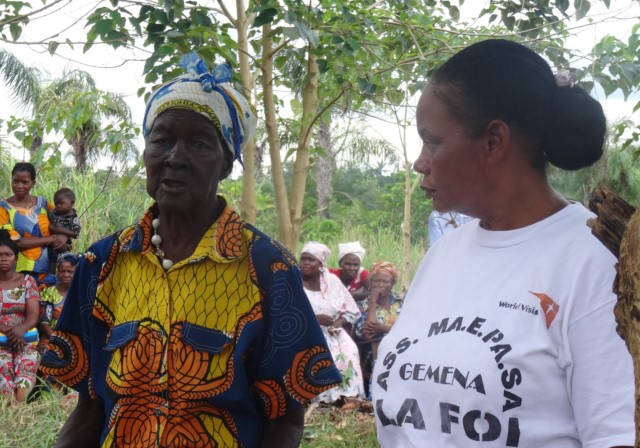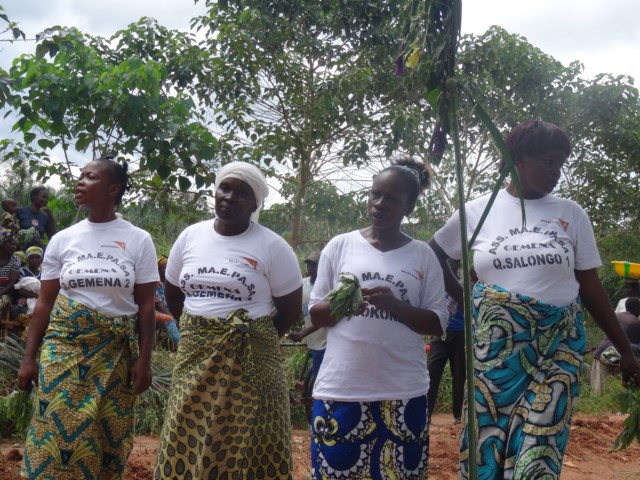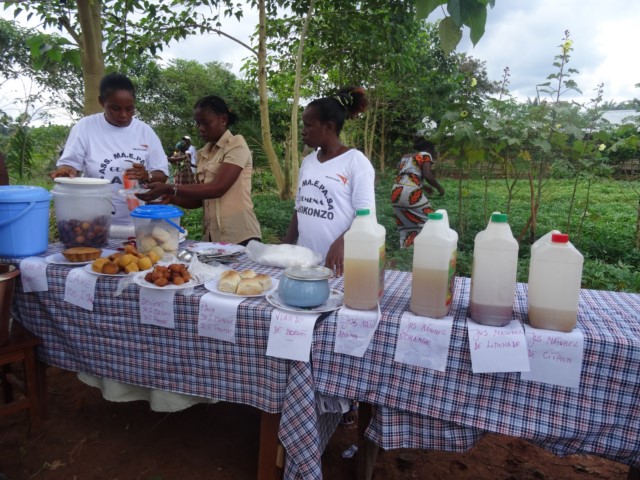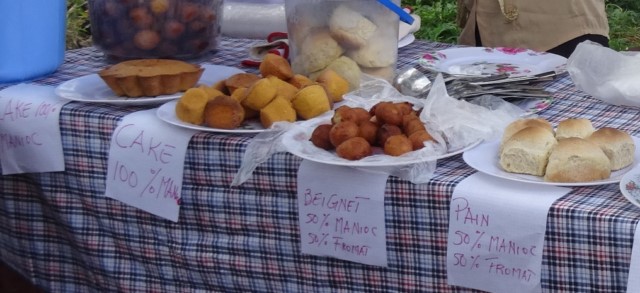“I am very happy for what I learned as a part of this [gardening] group. Now I am able to give my kids some food in the morning before they go to school. They also have some food to sell to help pay their school fees.”
– Mama Marie“It used to take us 10 days to process our manioc and now we’ve learned how to process it in only 3 days. The way we process manioc now also makes it much more appetizing for my children. They like it, eat well, and go to sleep with full stomachs. I am very grateful for World Vision. I used to live in darkness and now I live in the light.”
– Mama Marie“I have four sponsored children. [Before the child sponsorship with World Vision] I lost two children to malnutrition. Now my kids are healthy and can complete the school year because they have money to pay their school fees.”
– Mama Ambana
The Covenant Kids Congo team visited the group of women’s gardening associations that are working to combat malnutrition and poverty. They call themselves MAEPASA or les Mamas des Enfants Parraine dans le Security Alimentaire (the mothers of sponsored children working for food security). Over 60 women were there to welcome us and tell their story. The women came from 10 farming associations throughout the city of Gemena.
Gardening to Fight Malnutrition
The initiative started when World Vision asked the development NGO La Foi (or “Faith”) to teach mothers of malnourished kids. They started in the Saza neighborhood. First they taught mothers about cooking and then about nutrition for infants and very young children. When these mothers saw their need, they decided to start small gardens. World Vision and La Foi helped them learn about raising the best vegetables to feed their families.
As they implemented what they learned, they found that their kids were healthier and they had money for medical care and school fees. World Vision helped the group in the Saza neighborhood with hoes, seed, and watering cans for a larger garden. They are growing manioc, corn, rice, and vegetables in their gardens.
Other women saw what was taking place and decided to do the same on their own. And they did. There are now women’s groups in 10 Gemena neighborhoods, including 350 heads of households. They are producing crops and vegetables on 17.5 acres spread across 16 different sites. World Vision’s role has been to teach and encourage, and help with a few tools from time to time. All of the women are making a profit from the sale of their produce.
We visited the Mombonga group of MAEPASA, which includes 28 heads of households. These women told us:
We have learned about cooking a balanced diet
We’ve learned to manage resources
We no longer have the malnutrition in our homes we used to have
Thank you World Vision [and Covenant Kids Congo]
Delicious Food and a Smart Selling Strategy
After the presentation, they had some samples of food they had made. There were fresh juices: pineapple, orange, citrus, and lemonade. And breads: a very tasty muffin and cake made from only manioc flour along with two breads made from half manioc and half wheat flour. They explained that because manioc does not have gluten to bake with, you use eggs to replace the gluten and you add a little extra yeast. It was DELICIOUS. One of the visitors said you could sell these at Starbucks for $5 each!
They explained that they have learned to study what produce is available what days in the local market. Then they plan to sell their produce on the days when there is no (or much less) produce, so they can get a higher price. Simple indeed, but a profound impact.
Two buzzwords in community development are capacity building and women’s empowerment. Sometimes you ponder how these will really take place. In the case of these women’s groups, this is truly women’s empowerment and capacity building. These activities are changing and saving lives. They make a long-term difference for these women and their children. Thanks CKC powered by World Vision!
A version of this post originally appeared on Pete Ekstrand’s blog, Ekstrands in Congo.







